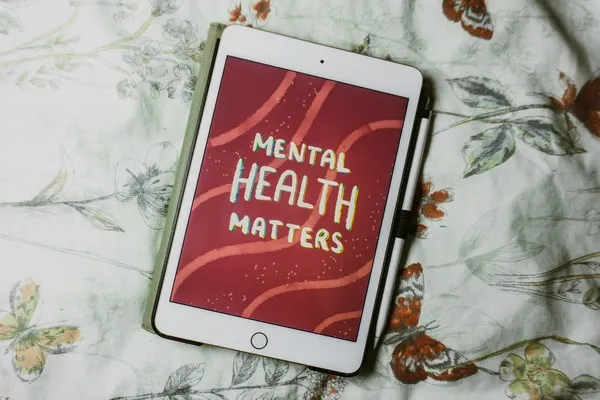Table of Contents
- The Social Construction of Mental Illness
- Historical Perspectives on Mental Illness
- The Role of Social Inequality in Mental Health
- The Stigma of Mental Illness
- Social Control and Institutional Responses
- Cultural Interpretations and Global Perspectives
- Moving Toward Inclusive Understandings and Interventions
- Conclusion
Mental illness has long been a subject of intense examination within multiple academic disciplines, including psychology, psychiatry, and sociology. While medical experts focus on diagnostic criteria and therapeutic interventions, sociologists investigate the broader social contexts, cultural meanings, and structural forces that shape how mental illness is understood, experienced, and addressed. This sociological vantage point extends our perspective beyond individual biology, highlighting how institutions, social norms, and power relations can influence both the prevalence of mental illness and the resources available for care and support. This article introduces central sociological concepts related to mental illness, from the social construction of diagnostic categories to the role of social inequality in shaping mental health outcomes. By understanding mental illness through the lens of sociology, we can better appreciate how broad social dynamics intersect with personal experiences of mental distress.
The Social Construction of Mental Illness
The Importance of Social Context
From a sociological standpoint, mental illness does not exist in a vacuum. Every culture and society has frameworks for interpreting unusual thoughts, feelings, and behaviors. These interpretations are shaped by historical contexts, cultural norms, religious beliefs, and scientific paradigms that vary across time and place. What one society considers to be “mad” or “irrational” might be accepted elsewhere as a normal—if unusual—variation in human behavior.
Rather than viewing mental illness purely as a biochemical or genetic flaw, sociologists emphasize how labels and definitions of mental disorders arise in specific socio-historical contexts. For instance, certain disorders appear or disappear from diagnostic manuals depending on prevailing professional consensus, societal pressures, or research developments. Over the years, categories like “hysteria” and “neurasthenia” have faded from widespread use, demonstrating how concepts of mental health and illness evolve alongside broader cultural shifts.
Labeling Theory in Mental Health
Labeling theory, rooted in symbolic interactionism, highlights how social labels can have profound effects on individuals’ behaviors and identities. When people are labeled as “mentally ill,” these labels influence how they see themselves and how others respond to them. The process is iterative: once someone is labeled, that label can shape their self-concept, and in turn, might influence their behavior and even prompt the manifestation of the labeled characteristics.
For example, a person newly diagnosed with depression may internalize the label and perceive their daily difficulties as intrinsic and inescapable. Others around them—family members, co-workers, or friends—may begin to treat them differently, either offering sympathy and support or distancing themselves out of fear and misunderstanding. In either case, the label influences both societal reactions and individual self-image. This interplay between societal expectations and individual interpretations can become self-fulfilling, further complicating the experience of mental illness.
Historical Perspectives on Mental Illness
From Moral Judgments to Medicalization
In many Western societies, mental illness was historically understood in moral or even spiritual terms—individuals experiencing mental distress were sometimes labeled as sinners, possessed, or morally deficient. Over time, institutional responses to mental distress included asylums, which emerged in the 18th and 19th centuries as places of confinement and, at times, questionable treatment. These institutions showcased how society responded to individuals deemed “undesirable” or “deviant,” often isolating them from the community.
By the late 19th and early 20th centuries, however, psychiatry began to develop as a medical field, progressively replacing moral explanations with clinical and scientific approaches. This phenomenon, often referred to as the medicalization of mental illness, allowed psychiatrists to frame specific patterns of thought or behavior as psychiatric conditions requiring medical intervention. While this shift helped reduce overt moral condemnation and opened the door for more compassionate treatment approaches, it also facilitated an environment in which complex social problems became pathologized, potentially overlooking systemic factors such as inequality and poverty.
Deinstitutionalization and Community Care
A major turning point in the history of mental health care occurred in the mid-to-late 20th century with the process of deinstitutionalization. Motivated partly by humanitarian concerns about overcrowded and inhumane conditions in mental institutions, and partly by budgetary pressures, many developed countries reduced their reliance on large psychiatric hospitals. Instead, mental health services were supposed to move into community-based settings—outpatient clinics, group homes, or rehabilitation centers. This shift had mixed results.
On the one hand, deinstitutionalization allowed many individuals the freedom to live in community settings, thereby facilitating more humane treatment and access to broader social networks. On the other hand, inadequate funding and poorly structured community care systems left many formerly institutionalized individuals without adequate support. The consequences of this under-funded transition include higher rates of homelessness and incarceration among those with severe mental illness, highlighting how social policy and welfare systems significantly shape mental health outcomes.
The Role of Social Inequality in Mental Health
Socioeconomic Status and Mental Illness
Socioeconomic status (SES) is among the strongest predictors of mental health outcomes. Individuals living in poverty or precarious economic situations often confront chronic stressors, such as insecure housing, food insecurity, and limited access to healthcare. Stressful life events—job loss, evictions, debts—are more prevalent in lower socioeconomic groups, amplifying vulnerability to anxiety, depression, and other mental disorders.
Moreover, socioeconomic deprivation frequently limits access to quality mental health services. For those already struggling to meet basic needs, therapy or counseling can seem like an unaffordable luxury. Healthcare inequalities also reveal themselves in the distribution of mental health practitioners; many mental health professionals cluster in affluent urban centers, leaving economically disadvantaged or rural regions underserved. This maldistribution of resources underscores the structural nature of mental health disparities.
Race, Ethnicity, and Cultural Dynamics
Racial and ethnic identities often intersect with class to create unique experiences in the mental health landscape. Marginalized groups can face discrimination in employment, housing, and education—stressful experiences that can increase the likelihood of mental distress. Additionally, cultural stigmas around mental illness might deter members of certain communities from seeking help. For example, in some cultures, discussing psychological challenges openly is discouraged due to family reputation or deeply held beliefs that mental illness signals personal or familial failing.
Institutional discrimination in healthcare can further compound these issues. Language barriers, lack of culturally competent providers, and mistrust in medical institutions stemming from historical mistreatment can all discourage individuals from accessing mental health services. Therefore, racial and ethnic disparities in mental health cannot be reduced to isolated individual choices; they reflect the outcomes of entrenched structural inequalities.
Gender Dynamics and Mental Health
Gender also intersects with mental health in sociologically significant ways. Historically, conditions like “hysteria” were predominantly ascribed to women, reinforcing cultural stereotypes about femininity, emotional volatility, and irrationality. Contemporary diagnostic patterns sometimes reveal a skew in how certain disorders are perceived or diagnosed along gender lines. For example, depression and anxiety diagnoses are more common among women in many societies, while men may be underdiagnosed for these same conditions due to social norms that discourage emotional openness.
Social expectations around gender—such as the pressure on women to manage household responsibilities or on men to present as stoic and unemotional—can shape individual stress levels and coping mechanisms. Transgender and non-binary individuals face particularly high rates of stigma and marginalization, leading to elevated risks of depression, anxiety, and suicidal ideation. These complexities illustrate how gender norms intersect with mental health in ways that cannot be captured solely by biomedical or individual-level explanations.
The Stigma of Mental Illness
Impact on Individuals
Get the full article AD FREE. Join now for full access to all premium articles.
View Plans & Subscribe Already a member? Log in.





